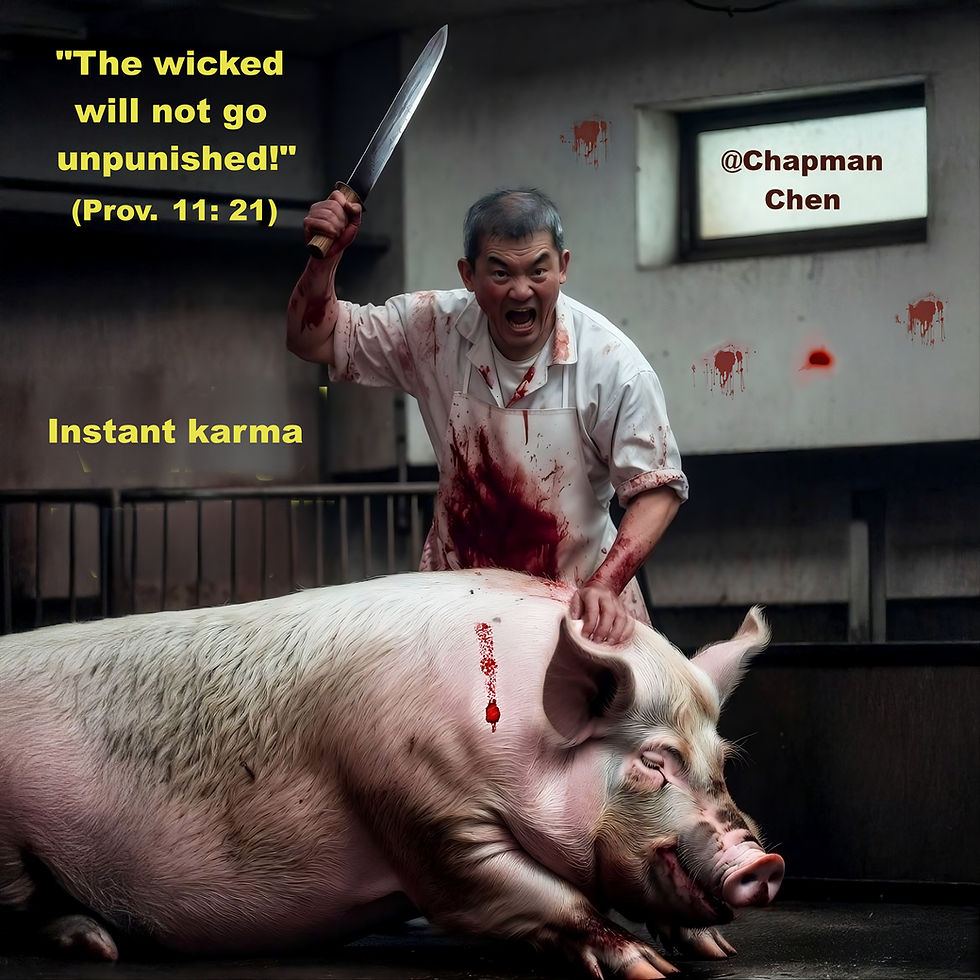Justice, Compassion, and the Call to Break Every Yoke. By Dr. Chapman Chen
- Chapman Chen

- Sep 23, 2025
- 2 min read

The prophets Isaiah and Amos remind us that true devotion to God is not found in ritual fasting alone, but in dismantling injustice and extending compassion. Isaiah 58:6–10 calls for loosing the chains of oppression, feeding the hungry, clothing the naked, and caring for our kin. Amos 5:24 envisions justice flowing like a river and righteousness like an endless stream. Both passages insist that faith must be lived out in works of justice, mercy, and solidarity.
1. Animal Agriculture and Global Injustice
Animal agriculture is one of the most pervasive forms of systemic oppression in our age. It binds billions of sentient beings in chains of confinement, mutilation, and slaughter. These creatures—innocent and vulnerable—are yoked to a system that commodifies their bodies and denies their God-given dignity. Beyond the animals themselves, this system fuels global injustice:
1.1. Hunger
Vast quantities of grain and soy are fed to livestock while millions of people go hungry. Isaiah’s call to “share your food with the hungry” is betrayed when human food is diverted to fatten animals for wealthy markets.
1.2. Exploitation of the poor
Many agricultural labourers, especially in the Global South, endure unsafe, underpaid, and demeaning work in service of industrial meat and dairy production.
1.3. Environmental degradation
Deforestation, climate change, and water scarcity caused by animal agriculture disproportionately harm vulnerable communities who contributed least to the problem.
In this way, animal agriculture epitomises the very “yoke of oppression” Isaiah urges us to cast off.
2. A Vegan Ethic for the Vulnerable
Choosing a vegan ethic is a way of embodying God’s justice and compassion. It directly addresses the needs of the hungry, the poor, and the oppressed:
2.1. Liberating animals
It ends their suffering and restores them as fellow creatures of God rather than commodities.
2.2. Feeding the hungry
Vegan diets make food systems more just and efficient, redirecting crops to nourish people rather than livestock.
2.3. Healing creation
By reducing deforestation, emissions, and pollution, vegan choices help safeguard the earth for future generations, protecting especially those already living at the margins.
2.4. Cultivating peace
Abstaining from killing animals fosters a spirit of compassion that can ripple outward into human relationships, reducing violence and strengthening communities.
3. Conclusion
When we align our eating with God’s justice, our “light will rise in the darkness” (Isa. 58:10). A vegan ethic allows justice to flow like the river Amos envisioned—never-ending, abundant, and life-giving to all God’s creatures. #VeganChrist #VeganGod #VeganTheology #VeganChurch





Comments